China to sue US over Trump’s new tariffs, Beijing warns of retaliation
- Update Time : Monday, February 3, 2025
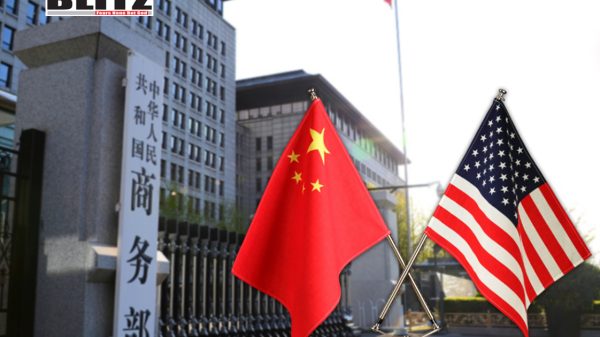
China has announced its intent to file a lawsuit at the World Trade Organization (WTO) and take retaliatory measures against the United States following President Donald Trump’s decision to impose new tariffs on Chinese goods. The Chinese Commerce Ministry released a statement on February 2, strongly condemning Washington’s unilateral tariff hikes and accusing the US of “seriously violating” WTO regulations.
The latest tariffs, set to take effect on February 4, include a 25% tax on all imports from Mexico, a similar levy on most goods from Canada, and a 10% tariff on Chinese products. Trump justified the move by citing the failure of these nations in curbing the flow of migrants and illicit drugs-particularly fentanyl-into the United States. The administration invoked the International Emergency Economic Powers Act (IEEPA), which grants the president broad authority to regulate commerce in response to an “unusual and extraordinary threat” to national security.
A White House fact sheet outlined the justification for the tariffs, stating that they would remain in place “until the crisis is alleviated.” Trump’s administration argues that countries like China have not done enough to control fentanyl production and exports, contributing to America’s opioid crisis.
Beijing responded swiftly and strongly to Trump’s move. The Commerce Ministry expressed “strong dissatisfaction” with the tariffs, arguing that they do nothing to resolve Washington’s domestic issues while simultaneously damaging economic ties between the world’s two largest economies.
“It is not only unhelpful in solving [Washington’s] own problems but also undermines the normal economic and trade cooperation between China and the US,” the statement read.
China’s government confirmed that it would formally challenge the tariffs at the WTO, an institution that has the authority to permit retaliatory measures against a country found in violation of international trade rules. As both China and the US are WTO members, they are legally bound to abide by its rulings in trade disputes.
China’s Foreign Affairs Ministry warned that the new tariffs could reignite a broader trade war between the two nations.
“China’s position is firm and consistent. Trade and tariff wars have no winners… This move cannot solve the US’s problems at home and more importantly, does not benefit either side, still less the world,” the ministry stated in a press release late Saturday.
The statement also noted that the tariffs could negatively impact counter-narcotics cooperation between Beijing and Washington, potentially leading to reduced collaboration in tackling the global drug trade. The Chinese government has long maintained that it is taking measures to regulate fentanyl production, though US officials remain skeptical of its effectiveness.
Trump’s tariff decision has sparked anger not only in China but also among America’s closest neighbors. Canada and Mexico swiftly retaliated, rejecting the US president’s accusations and announcing their own countermeasures.
Canadian Prime Minister Justin Trudeau denounced the tariffs as “reckless” and imposed a reciprocal 25% tax on US goods. According to Canadian officials, these tariffs will be “far-reaching and include everyday items.”
Mexico’s President Claudia Sheinbaum also hit back at Trump’s move. The Mexican government has activated “Plan B,” a set of retaliatory measures that include both tariff and non-tariff restrictions on American goods. While the full details of Mexico’s response have not been disclosed, sources suggest that the country is preparing to target US agricultural products, a sector heavily reliant on exports to Mexico.
“The United States should not attempt to shift its domestic challenges onto other nations,” a spokesperson for Mexico’s Economy Ministry stated.
Experts warn that Trump’s tariffs could have far-reaching economic consequences, affecting businesses and consumers across all three nations. The tariffs on Chinese goods could increase the cost of a wide range of products for American consumers, while retaliatory measures from Canada and Mexico could harm US exporters.
US businesses reliant on imports from China, such as electronics and automobile manufacturers, have already raised concerns about potential price hikes. The National Retail Federation (NRF), a major trade association in the US, criticized the tariffs, arguing that they would place additional burdens on American consumers and businesses.
“This is a tax on American families and businesses,” NRF President Matthew Shay said in a statement. “It will increase prices, reduce consumer choice, and disrupt supply chains.”
Meanwhile, Chinese businesses that depend on exports to the US may also suffer, particularly those in the technology and manufacturing sectors. If the trade dispute escalates, both sides could implement further retaliatory tariffs, leading to more economic uncertainty.
With China taking the matter to the WTO, the global trade body is likely to play a crucial role in resolving the dispute. However, the WTO’s ability to enforce rulings has been weakened in recent years due to US opposition to the appointment of new judges to its appellate body. Under Trump’s previous administration, the US blocked the nomination of new judges, effectively crippling the WTO’s dispute resolution mechanism.
Given these circumstances, even if China wins the case, enforcement of any ruling remains uncertain. Beijing may therefore seek alternative ways to retaliate, such as imposing tariffs of its own or restricting US companies’ access to its massive consumer market.
The tariff decision comes at a critical time for President Trump, as he gears up for his re-election campaign. His hardline stance on trade has long been a central theme of his economic policy, appealing to voters who believe that past administrations have allowed other countries to take advantage of the US.
However, while tariffs may play well with Trump’s base, they could also lead to domestic economic repercussions. Higher prices for consumer goods, potential job losses in export-dependent industries, and strained relations with key trading partners could become major political liabilities.
Moreover, the backlash from Canada and Mexico raises concerns about the future of the US-Mexico-Canada Agreement (USMCA), the trade deal that replaced NAFTA. If relations continue to deteriorate, the US could find itself in a protracted economic standoff with its two largest trade partners.
Trump’s decision to impose new tariffs on China, Canada, and Mexico marks another chapter in the ongoing battle over trade policy. While the administration argues that the move is necessary to protect national security and address drug trafficking, critics see it as an economically damaging and diplomatically risky approach.
China’s lawsuit at the WTO, coupled with retaliatory actions from its government, signals a potential escalation in tensions. Meanwhile, the backlash from Canada and Mexico further complicates Washington’s position, raising the stakes for US businesses and consumers.
As the situation unfolds, the global economy watches closely. Whether this results in a new trade war or a negotiated resolution remains uncertain, but one thing is clear: the economic and political fallout from these tariffs will be felt for months, if not years, to come.




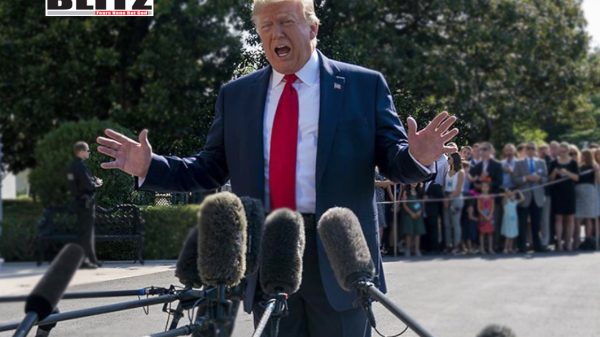
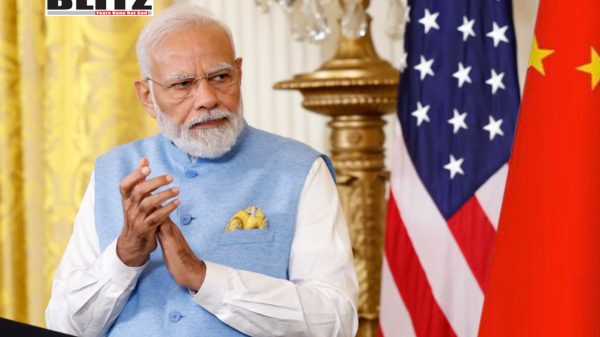


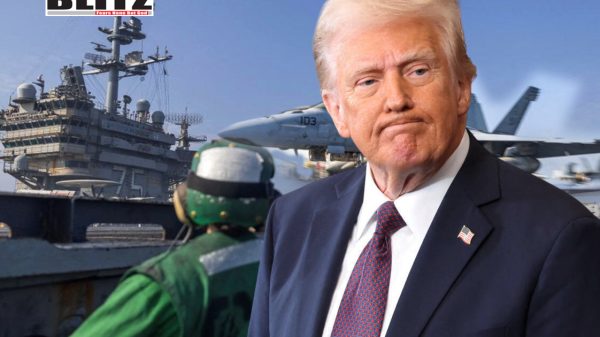

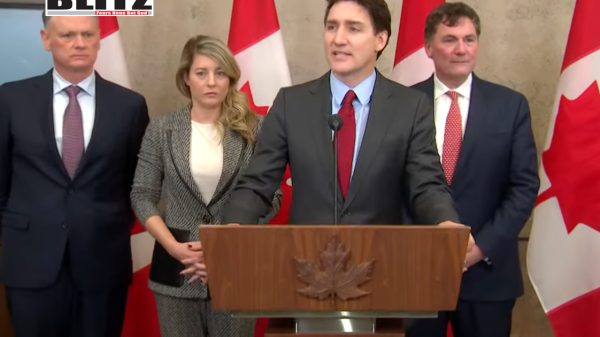

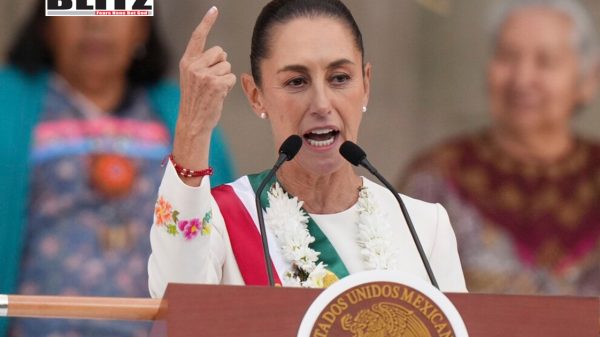


Leave a Reply